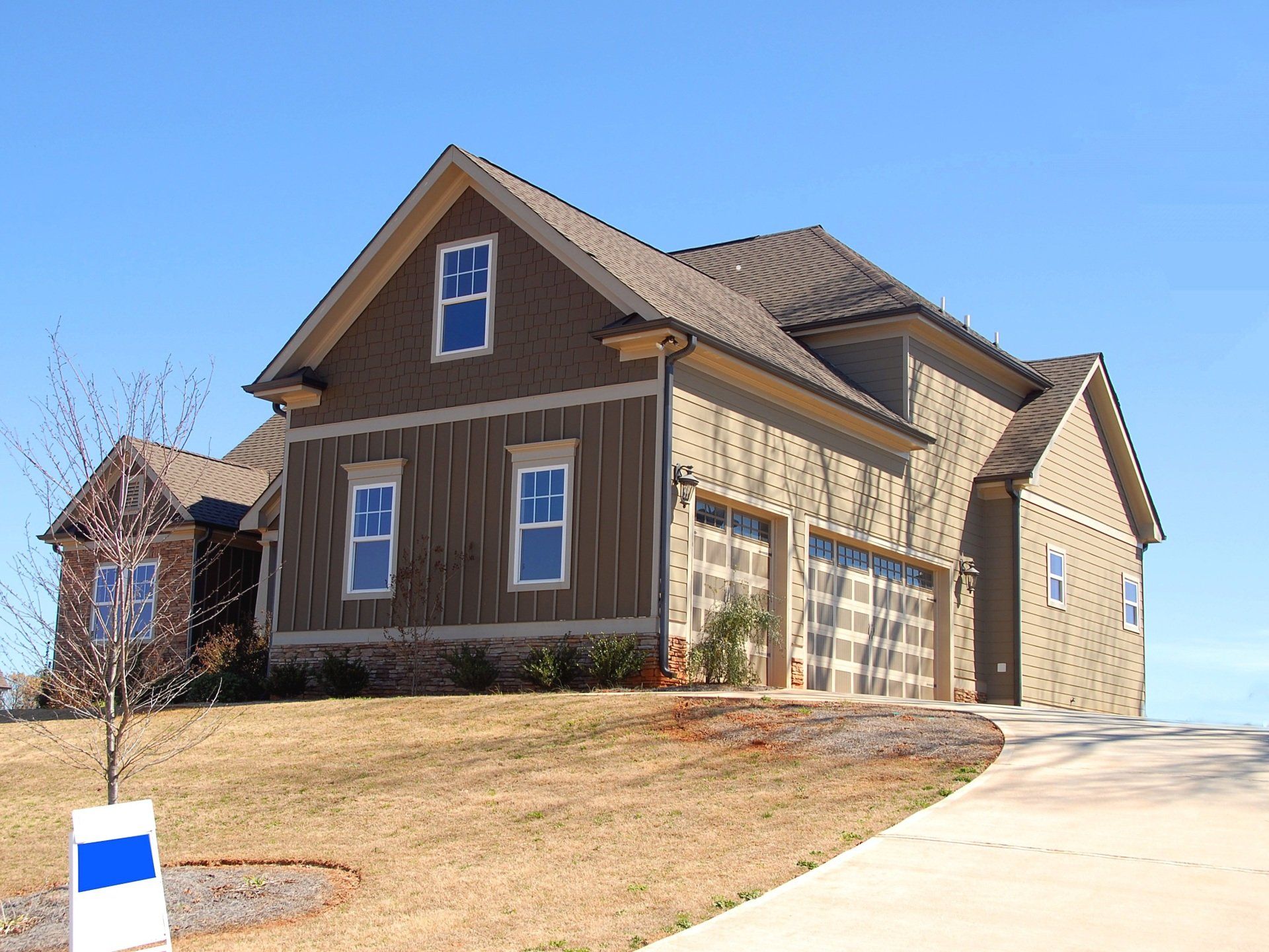
With the weather in the upper 90's, it's hard to believe that most kids are back in school. Just this last week I met with a friend whose oldest child is heading back to college. As we sipped our coffee we got talking about our own college days and about all of the costs that go along with being away from home for the first time. My friend brought up an interesting question, what happens if something happens to his daughter's belongings while she's away; does she need renters insurance? The answer to that is, maybe. Below I'll get into more details and why a college student may or may not need it.

Inflation has left its mark across the board, and we are especially seeing it in the automotive industry. The CPI (customer price index) shows that over the last 3 years, there has been a 35% inflation rate for used vehicles and a 22% increase for new vehicles. With numbers like that, a lot of people that are in the market for a new car a looking at ways they can save either in their purchase or through their insurance. This has lead to a lot of questions. We have taken the questions we get most frequently and answered them below.

Do you remember the viral news story of the Homeowners Association (HOA) fees increasing by hundreds of dollars in one local community, and the HOA board claiming it was due to insurance premiums going up? While we cannot speak specifically to that situation, we did want to answer some of your most common questions regarding HOAs and insurance. Q. Why do insurance premiums go up (for HOA’s or in general) Great question. Insurance premiums are based on a number of factors including frequency and cost of claims, property valuations and increased risk due to extreme weather. To further explain, if an organization or individual frequently makes claims to their insurance company, they may become considered “high risk”, meaning it costs the insurance company more to insure them, so to help offset this cost, their premiums increase. Q. If claims make our premiums go up, when should we be filing claims? The pricing of any policy is based on risk. Underwriters look at the frequency and severity of claims. Filing of any claim, even one below the deductible, impacts the carrier because the carrier will need to investigate and determine coverages and damages. Filing a large number of claims may cause your insurance rates to increase or your policy to be non-renewed. Prior to filing a claim, it is best to determine the likelihood of the claim exceeding the deductible and reviewing the number of claims filed in the past. Of course, if a claim is to be filed, it should be done promptly. Q. How do we determine what deductible the HOA should choose? First, understand that a deductible is that amount you have to pay before insurance kicks in and pays. For instance, if the cost to fix something is $1000.00 and you have a $500.00 deductible, you would pay $500.00 and (if you submitted a claim) the insurance company would pay the remaining $500.00. There are three questions you should ask when selecting a deductible: How much can the association afford; How much can be saved per year by raising the deductible; and What alternatives are there to carrying a high deductible? Q. I’m a volunteer board member for my HOA. Do I need insurance? Absolutely. Board members are often asked to make tough and complex decisions for the association. Decisions that may make some HOA members unhappy or angry. Because HOA board members can be held personally liable for their mistakes and their decisions made for the association, they need Directors and Officers Insurance coverage. Normally paid for by the HOA, D&O coverage protects volunteer and paid board members from liability should there be claims against them for their work on behalf of the HOA. Q. How can we get competitive quotes for our HOA Insurance coverage? We are independent agents, and we have access to dozens of insurance carriers. Unlike a captive agent, who represents only one carrier, we can compare several policies saving you time and trouble. Q. What other insurance coverage do HOA’s need? There are several that may be needed, includin g: A. Commercial General Liability/Property Insurance - Liability refers to expenses and damages associated with legal action against the association. For example, if someone is injured on HOA property and decides to sue the HOA. The liability portion of the policy will pay defense costs and covered damages, if awarded. Some policies will include a retention amount, similar to a deductible, which is the HOA’s responsibility. Property damage, on the other hand, refers to physical damages to HOA buildings (that portion owned by the association) and public areas. For example, hail damages the condo exteriors, then the insurance provider will cover the cost of repairs less a deductible. B. Workers’ Compensation and Employee Dishonesty Bonds - Like any other business, if a HOA has employees, workers compensation insurance is necessary to avoid lawsuits should an employee be injured while on the job. Employee dishonesty bonds protect the association from theft and damage of association property by dishonest employees. C. Discrimination Claims Coverage - For associations in the position to foreclose on residents who fail to keep up with their mortgages, discrimination claims coverage is a must. When facing foreclosure, many people look for any way to avoid losing their homes; one of those ways may be filing a discrimination claim. This important home HOA insurance covers associations against this liability in the event they are required to foreclose against a person who is of a minority status, or some other protected individual. Discrimination coverage is becoming more important for HOAs as foreclosure rates continue to climb. D. Social Host Liability Coverage - Some homeowners’ associations have clubhouses and social gathering places where members and other guests can meet for planned events. If alcohol is ever served on association grounds at any of these events, HOAs need social host liability coverage. If the HOA does not permit the serving of liquor in the public areas, this coverage may not be necessary. E. Garage keeper’s Coverage - An association that has a garage where non-members are permitted to park must have garage keeper’s insurance. This insurance protects the HOA and the vehicle owner against vehicle damage or theft while that guest is on the premises and parked in the association’s garage. This is not meant to be an exhaustive list of insurance coverages available or needed by all HOAs. No single policy, or group of policies, can protect against every possible risk. It’s best to discuss your HOA’s specific needs with an independent insurance agent. Call us today.

When it comes to auto insurance, health insurance, small business insurance, and even wedding insurance, most people are eager to make sure they have the right coverage and are protected. However, when it comes to life insurance many people become squeamish and make excuses as to why they don’t think they need such important coverage. Below, you will find common excuses we hear for not buying life insurance, and our answers to them. 1. I’m a full-time, stay at home parent, why do I need life insurance? It doesn’t matter if you are married or single. If you have children, you need to consider life insurance. If you’re a married parent who works, will your partner be able to manage the income gap in the family finances without your paychecks coming in each month? If you’re a stay-at-home parent, you might not concern yourself with life insurance because you aren’t employed and earning a paycheck. But ignoring “unpaid labor” such as childcare and household tasks is a mistake. Maintaining a household is a full-time job, and you have many important roles and duties. If you die, your partner may have to pay for services such as childcare, transportation for your children, and housekeeping. Taking over these added responsibilities could cause your spouse to shorten work hours, resulting in a further reduction in income. Proceeds from your life insurance can help your spouse pay for services that keep the household running and allow your spouse to keep working. Additionally, permanent life insurance plans can offer benefits to supplement your retirement or provide you the ability to withdraw or borrow against its cash value. 2. I won’t collect it because I’ll be dead. Many people don’t realize that there are several types of life insurance policies that can provide benefits to the insured while they are alive. These benefits can include low interest loans that can be used by the insured for any reason, tax-deferred growth of the policy’s cash value, and a benefit that will pay out a portion of the policy limit should you become terminally ill or need long-term care because you are incapable of performing Activities of Daily Living (ADL), such as bathing, dressing, or eating. 3. Only old people need life insurance / I don’t need it; I never get sick. Life insurance premiums are based on your age and health when you buy the policy, so the cost is generally lower if you are younger and healthy. If you wait until you are sick or elderly to buy life insurance, it may be too late. Locking in a great rate when you are young can also give you a feeling of being financially secure and better prepared for the future. 4. I’ll have plenty of money in the bank to pay for my funeral when the time comes. Most people intend to save money and invest but the truth is that research by the Federal Reserve shows 40% of Americans would struggle to cover a $400 unexpected bill. With the average funeral costing more than $10,000, most families would be financially devastated without insurance. And turning to crowdfunding to raise funds for an unexpected funeral is financially risky and it’s a situation which only adds stress to an already difficult time. 5. It’s too expensive. Many people don’t have life insurance because they think it’s too expensive. Life insurance is not a one-size-fits-all solution. There are a variety of life insurance policies to provide you the coverage you need at a price you can afford. 6. I have plenty of life insurance at work. If you have life insurance through your employer, great! However, it may not be portable, meaning, if you leave the company, you may not be able to take your policy with you. Also, it likely doesn’t include any benefits other than a death benefit. You can gain a lot of information online about life insurance, but it can be time consuming and confusing. An experienced independent agent, like us, can help you sort through the clutter and select the policy and company to suit your needs. Give us a call today and we will be happy to give you more information and answer all your questions.

🎶Jingle Bells, Jingle Bells… if you listen closely, you can hear the sound of wedding bells in the distance, just behind those jingle bells. That is because Christmas is one of the most popular holidays to get engaged. It can feel like a magical time, and many that are newly engaged jump right in to planning and saving for the wedding. Planning a wedding can take a lot of work and can be very costly. According to The Knot, an average Colorado wedding with 100 – 150 guests can cost more than $30,000. Destination weddings can cost even more and can take up to a year or more to plan. That’s a lot of money, and as much as future newlyweds may not want to think about it, a lot can go wrong in that time. That’s why if you are planning a wedding, you need wedding insurance coverage. Wedding insurance is a type of special event insurance and special event insurance can be purchased for just that, any type of special event such as a wedding, an anniversary celebration, a Quinceañera, or a charitable event. Although you can purchase special event insurance up to three days prior to the event, the best time to purchase it is before you start incurring costs. The following paragraphs will dive more deeply into the reason behind getting wedding insurance specifically. Covid made many people realize the reality of having to postpone a wedding and the unfortunate cost related to postponement (or flat out cancellation). According to Lending Tree, 63% of American Couples postponed their wedding due to COVID. Our wedding cancellation or postponement insurance offers you protection throughout the wedding process. We can reimburse you for lost deposits and/or non-refundable payments if you are forced to postpone or cancel your wedding due to circumstances out of your control. Scenarios such as injury or illness of an immediate family member, vendor bankruptcy, extreme weather or unexpected military deployment can all be covered. Our wedding policy also covers you if a wedding vendor cancels on you and you need to hire a new, more expensive vendor. Coverage against loss or damage to wedding photographs and videos, wedding gifts, wedding rings or wedding day attire is also included with all policies. Remember that viral video of the wedding dress getting ruined? Wedding insurance could have helped cover the cost of the damage. (The wedding planner also should have had professional liability insurance, which was discussed in a past blog). Many venues also require you to have liability coverage. Liability insurance protects you from claims for property damage or bodily injury to a guest, including medical payments and defense costs in case of lawsuits. If you are serving liquor at your reception or rehearsal dinner, Liquor Liability coverage is a must. It protects you against claims of bodily injury or property damage due to the distribution of alcohol at your event. Remember that other viral video where the guest had a little too much to drink and nearly set the venue on fire? Unfortunately incidents like this happen more frequently than most people realize, so make sure you are protected. Planning a wedding should be exciting and fun, but we know that it can also be stressful and that it's easy to start thinking about the, “What if's”. What if my wedding dress gets ruined, what if that friend from college has a little too much to drink and gets a little too wild, what if I get cold feet and cancel the wedding? While we hope everything goes smoothly and you find your way to wedded bliss, we also want to ensure that through the right wedding insurance, you have peace of mind in knowing that you’ll be protected should something not go according to plan.

‘Tis the season for online shopping, holiday parties, and cyber crime. We’ve discussed it in the past and it is important enough, we are talking about it again. For many small businesses and individuals, this is a wonderful time of year for shopping, eating out, and merry making, but unfortunately it is also a time of year when we see increased activity by cyber criminals.

It's that time of year again when we are on the lookout for good deals, good gifts, and good shopping either for ourselves or for others. Unfortunately, this means thieves are also on the lookout, but they are looking for the perfect opportunity for parking lot pilfering, porch pirating, and personal ID theft.

Fall is finally here. As it starts to cool and the leaves begin to change, you may find yourself imagining the days to come where you'll spend more time in your yard raking up leaves and maybe watching your children enjoy jumping into them. Or maybe you're taking this time to plan a holiday trip to visit family out of state, and imagining all the fun you'll have on vacation. Now imagine you're doing yard work or completing household projects, and all of a sudden you find that your wedding or engagement ring is missing. What do you do? While the sentimental cost can not be replaced, will your insurance company pay to replace the financial cost? Or what about this, you love photography and are excited to use the brand new, expensive camera you invested in for family pictures. What will you do if it gets destroyed? Do you know your insurance policy well enough, to have the peace of mind that your camera can be replaced if something happens? Not sure about the above scenarios or have other questions about your personal property that goes with you on vacations or other trips? Read on!

When the pandemic hit, many people examined what they were doing in their careers and decided it was time for a change. Whether it was turning a side hustle into an all out business or focusing on something entirely new, many people decided to make the switch from working for a company to working for themselves. This is great and we know from personal experience that it takes a lot of work and dedication. An aspect that many people do not think about when striking out on their own is the importance of having the right insurance to protect their business. Read on to learn more about why professional and general liability insurance is important and how it can help protect you and your business.

In the United States there are approximately 1.5 million nonprofits, making up the 3rd largest workforce. Nonprofit organizations, just like other businesses, face many kinds of risks in their day-to-day operations. Additionally, most nonprofits use volunteers, which exposes them to risks for-profit businesses don't face. Obtaining the right insurance for a nonprofit can mean the difference between operating long-term or having to abandon their mission after a loss.

“We’re number one! We’re number one!” That is normally a good thing, but not when it comes to car theft. Did you know, Colorado is the No. 1 state in the nation for car theft? Colorado’s auto theft rate has increased 32% from 2020 and seems to be rising. According to the Colorado Auto Theft Prevention Authority (CATPA), our top cities for car thefts are Denver, Aurora, Westminster, and Pueblo. In 2022, more than 40,000 cars (that’s more than 100 cars per day) were stolen in Colorado. Of those, nearly 89% were recovered but most were found partially damaged, missing major components, or damaged beyond repair. According to the National Insurance Crime Bureau (NICB), catalytic converter thefts from vehicles jumped by 1,215 percent between 2019 and 2021. Below is a list of the 10 most stolen vehicles in 2022: Kia Sportage Hyundai Tucson Hyundai Sonata Chevy Silverado Kia Optima Hyundai Elantra Kia Sorento Ford F-250 GMC Sierra Kia Soul

Extreme weather events such as fires, floods and hail as well as labor shortages have created conditions that impact insurance rates. We are currently in a hard market, which means that premiums are trending upwards across the country. In fact, a recent survey showed homeowners insurance premiums increased nationally an average of 12.1% in 2022. The increase represents a sign of the times in the homeowner’s market as inflation, but whether the increases are small or large, there are ways to save money on premiums.

If you might be intoxicated – don’t drive! The National Highway Transportation and Safety Administration (NHTSA) reports that drivers with blood alcohol concentrations (BAC) of .08% or higher are approximately four times more likely to be in an accident than drivers with a BAC of zero. If a driver’s BAC is 0.15% or more, the NHTSA found they are about 12 times more likely to be in an accident. The average insurance rate increase in Colorado after a DUI/DWAI is 45%. Some companies in Colorado may raise insurance rates by 150% after a DUI if an accident is involved. For people convicted of a DUI, DWAI or other drug related driving offense, the Colorado Department of Motor Vehicles will require you to get an SR-22. An SR-22 is not an insurance policy but a document that insurance companies provide to verify a driver has car insurance in place. The state requires this after a DUI because they find you a high-risk driver and want proof you have the required car insurance coverages in place. If you cancel the coverage for any reason, the insurance company must notify the state and you will be penalized. The SR-22 is also a “red flag” to insurance providers that you have problems with your driving history and are now a high-risk driver. Colorado will typically require you to carry SR-22 for up to three years. Your insurance rates may be impacted (surcharged) for a DUI for 3 to 5 years. And don’t think you can’t get a DUI just because you are not driving! In Colorado, it is possible to get a DUI while parked because of a legal concept known as “actual physical control.” Basically, if you are in the front seat of a car, intoxicated, even with no intention of driving, you could still get a DUI while parked for having the capability of driving. Whether you will be convicted is decided by the circumstances, such as where the vehicle is found, where the keys are, and whether or not the vehicle was running. The rules apply in parking lots, roadways, and even on private land such as your driveway. The cost of a ride home after a few drinks pales in comparison with the years of increased costs due to a DUI/DWAI conviction, so please, don’t drink and drive. This is not meant to be legal advice or a complete discussion of the topic. For more information about your unique situation, contact your professional advisor.

Colorado requires drivers to carry auto liability insurance, however many irresponsible drivers ignore this and do not have coverage. In fact, at least one out of every seven cars that passed you on your way to work today probably did not have insurance. Automobile owners in Colorado are required to carry liability insurance with minimum coverages of $25,000 for bodily injury or death to any one person in an accident and $50,000 for bodily injury or death to all persons in any one accident. Even though the at-fault driver may be personally responsible for damages above their insurance limits, it may take months or years to settle a claim or win a lawsuit and collect damages. So, who takes care of you when you get into an accident and the at fault driver has caused damage that exceeds their limits, doesn’t have insurance, or worse yet if the other driver leaves the scene of the accident (hit and run)? If you have purchased Uninsured Motorist Bodily Injury/Underinsured Motorist Bodily Injury (UMBI/UIMBI) coverage, you can pursue a claim with your own insurance company. An UMBI/UIMBI policy can help ensure the burden of coverage is not coming out of your pocket. This policy may provide money for medical bills, your lost time from work, and for your pain and suffering. Your UMBI/UIMBI coverage is also “portable,” meaning that you are covered whether you are on a bicycle, a pedestrian, or in someone else’s car and injured by an at-fault driver. The policy normally provides coverage not only to you for your injuries and your passenger’s injuries, but also provides coverage to anyone using your insured vehicle with your express or implied consent, any guest in your insured vehicle, your spouse (if living in the same household), and to your children and stepchildren residing in your household. To be clear, if you have been injured in an auto accident that was not your fault, you should first seek compensation from the at-fault motorist. However, your own auto policy’s UMBI/UIMBI coverage becomes critical if the at-fault driver is either uninsured or does not have enough liability insurance to cover your damages. If you would like to know more about this critical, optional coverage, give us a call today. This is not meant to be legal advice or a complete discussion of the topic. For more information about your unique situation, contact your professional advisor.

Here at the Head Insurance Group, we know all about the struggles and triumphs of owning and operating a small business. Not only are we a small business, we’ve helped insure dozens of local small businesses throughout the area. Some of those we insure have faced flooding, vandalism, burglary and other issues that, without the right insurance, could have been devastating. When starting a small business, or if you are evaluating your current organization, it is important to understand that just like large companies and individuals, small businesses require insurance that is tailored to their needs. When analyzing the insurance needs of your organization, it’s helpful to consider two key elements, claim frequency and claim severity. Claim frequency concerns the number of claims that occur within one year – a typical policy period. Claim severity refers to the average cost to resolve a claim. A recent five-year study analyzed business claims to determine which types of claims occurred most frequently and which had the most severity. Keep in mind this is an overview of all businesses; certain businesses may be more at risk for some claims then others. The types of claims that occurred most often are listed below in descending order. The percentages reflect the percent of small businesses affected by each type of loss. Burglary and Theft (20%) - Burglaries and thefts may be committed by insiders (dishonest employees or company principals) or outsiders. Water and Freezing Damage (15%) Wind and Hail Damage (15%) Fire (10%) Customer Slips and Falls (10%) Customer Injury and/or damage to customer property (Less Than 5%) - Customers can sustain injuries at business locations in ways other than slips and falls such as being burned by a hot liquid (like coffee). Property damage like having a server spill queso into a customer’s purse. Product Liability (Less Than 5%) - Businesses that manufacture products may be vulnerable to product liability claims. Struck by an Object (Less Than 5%) - A wide variety of moving objects can cause injuries such as grocery carts, mobile equipment, and falling construction tools. Reputational Harm (Less Than 5%) - Businesses may be sued for acts like libel and slander that allegedly damaged someone’s reputation. Vehicular Accident (Less Than 5%) The same study looked at the severity, the cost to settle, each type of claim. Here is the ranking in descending order based on severity. The dollar amounts reflect the average size settlement for that category of claim. Reputational harm: $50,000 Vehicular accident: $45,000 Fire: $35,000 Product liability: $35,000 Customer injury or damage: $30,000 Wind and hail damage: $26,000 Customer slips and falls: $20,000 Water and freezing damage: $17,000 Struck by an object: $10,000 Burglary and theft: $8,000 We understand that small businesses often need to be frugal, especially when they are first starting out. One thing we frequently hear is, “I don’t need that coverage, we haven’t had a loss yet”. If you forgo getting coverage or enough coverage for your organization, are you confident your small business could cover the loss, as well as any legal fees that are inquired and remain stable? Are you willing to gamble something you have worked so hard to build on the hope that you won’t face a loss? Losses happen. Insurance is assurance that when a loss occurs, you’ll be covered. When you come to us for your insurance needs, you get the added benefit of talking to a real person who understands the excitement, the struggle, and the joy of starting a small business. We have the answers to your insurance questions and probably have answers to questions you haven’t even thought of yet. We’re happy to answer all of them. Finding the right insurance doesn’t have to be hard. Give us a call and we will be happy to work with you to find the right coverages for your small business.

Spring is in the air and planting season is approaching. As people realize the benefits of clean eating and the fun and income from having a side hustle, many have started hobby farming. What many people do not realize is such activities are not covered by their home insurance policies. What they will need to do, is to add incidental farming coverage to their policy. So, what is incidental farming? The typical definition of incidental farming is private farming operations on the residence premises that meet the following requirements: a. the farming is incidental to the use of the premises as your residence; b. the farming does not involve employment of others; c. the farming does not produce more than $5,000 in annual revenue; and d. any livestock animals are used for your own personal consumption or a 4-H type project To understand this better, let’s look at a hypothetical situation: Bob and Jill own a home and have a large garden. They grow vegetables and raise a few chickens for their own consumption and give some of their extra produce to neighbors. Since this is a leisure activity and not a source of income, the activity is insured with a standard homeowner’s insurance policy. As time passes, their yield increases and they decide to start a little stall at the farmer’s market nearby to sell the extra produce. Over time the number of hens on the farm has increased, and they are also selling the extra eggs they cannot consume. Additionally, they have invested in farm equipment and machinery to help with their work. Jill also loves to bake and sell her baked goods at their stall. Since they are now deriving income from their farming activities, and their homeowner’s policy excludes business activities, they need to add an incidental farming endorsement to their homeowner’s policy. Without it, if someone was injured by their activities, or their farm equipment or structures were damaged, they would not have protection under their homeowner’s policy. For more information about incidental farm coverage, give us a call. We’d be happy to discuss your risks and solutions. This is not meant to be legal advice or a complete discussion of the topic. For more information about your unique situation, contact your professional advisor.


